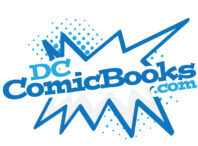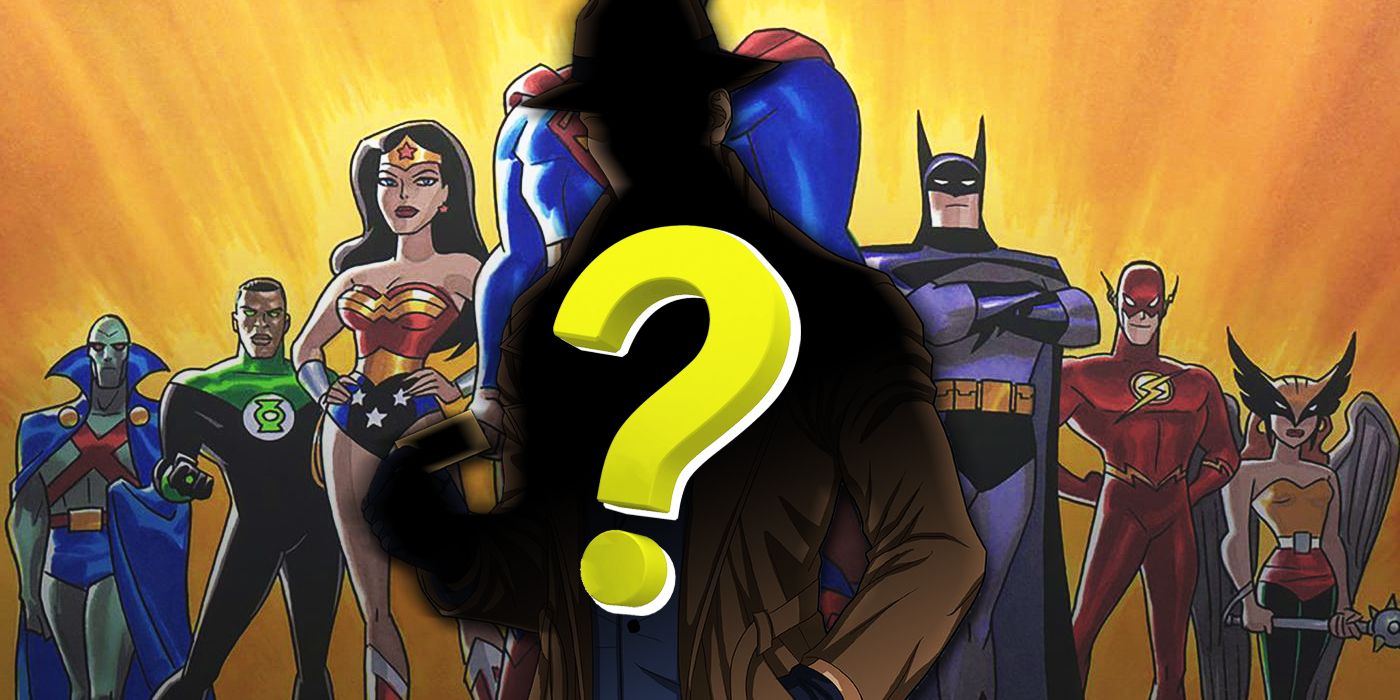[[{“value”:”
Key Takeaways
The character of The Question evolved over time, reflecting different interpretations of Objectivism and individual liberty.
The Tomorrowverse captured the essence of The Question in line with Ditko’s original vision, presenting a unique and authentic hero.
One of the last projects in the venerated DC Animated Universe was Justice League Unlimited, celebrating its 20th anniversary. While the series and its attendant universe is still beloved by fans, the recent adult animated DC shared universe, called the Tomorrowverse, bested its predecessor where one character was concerned. Steve Ditko’s Vic Sage, also known as The Question, appeared in both, but only the Tomorrowverse realized the character as his creator intended.
As a storyteller, Steve Ditko often imbued his own beliefs and philosophy into his stories, even when it was odds with his collaborators. A famous incident involved his creation, Peter Parker and student protestors, in which Stan Lee’s dialogue softened the message conveyed by Ditko’s images. One of Ditko’s coolest characters was investigative journalist Vic Sage who became The Question, a faceless vigilante. The character was the vehicle through which Ditko most directly expressed his controversial philosophy. The Question that appears in Justice Leage: Crisis On Infinite Earths evokes the creator’s original interpretation.
How Steve Ditko Used Vic Sage to Express His Beliefs
Vic Sage Shared the Same Objectivist Philosophy as His Creator
The Question at a Glance
Created by Steve Ditko First Appeared in Blue Beetle, Vol. 4, #1 First Alter-Ego: Vic Sage Wears ‘Pseudoderm’ Faceless Mask Appeared in the 1985 Crisis On Infinite Earths Event
Objectivism is a branch of loosely-constructed philosophy pioneered by author and political ideologue Ayn Rand. The name comes from Rand’s idea that reality and truth are objective, independent of human consciousness or observation. Put another way, Rand would think Schrödinger’s infamous cat would be alive or dead inside that hypothetical box long before anyone checked to see its fate. It gained popularity in the United States through her writing, specifically novels like Anthem, The Fountainhead and Atlas Shrugged. Its precepts are a mishmash of commitment to individual liberty, unregulated capitalism and, perhaps most importantly, prevailing self-interest.
Arguably, a true Objectivist wouldn’t be a vigilante solving crimes and saving innocents, unless doing so served the character’s self-interest.
Objectivism works for Vic Sage, who was introduced as an investigative journalist who sought to speak truth to power. The sci-fi Pseudoderm substance that makes up The Question’s featureless mask was the creation of two scientists: one who became Sage’s ally and the other who became his nemesis. When the substance was found to be toxic, The Question’s nemesis Dr. Twain wanted to sell it anyway. Vic Sage took on the identity of The Question to prevent this, then continued to fight crime while also working as a reporter.
There’s really just one element of Objectivism that is most prominently expressed through Vic Sage’s actions as The Question: the Randian notion that morality is itself an objective concept. Things are either good or bad, with no nuance or context in-between. Despite the celebration of unbridled capitalism found in Rand’s teachings, Ditko’s Sage found the sale of toxic Pseudoderm to be an objectively evil pursuit. However, because he didn’t see shades of gray in his moral worldview, The Question was ruthless and, at times, not above killing his enemies.
How Ditko’s Objectivism Served the Characterization of The Question
Vic Sage Is Arguably Fictions’ Best Objectivist True Believer
Like all comics characters that have existed for decades, The Question changed over time, especially his philosophical worldview. Other comics creators oversaw very popular runs with the character, particularly Dennis O’Neil and Denys Cowan’s Vic Sage. While there are many facets to the larger idea of Objectivism, Dtiko primarily focused on its strict moral philosophy and (sometimes contradictory) commitment to the idea of individual liberty. There is actually little evidence in Ditko’s work highlighting the more controversial aspects of Randian philosophy.
For example, a long-running comics rumor is that Steve Ditko objected to the Green Goblin’s secret identity. From a Randian perspective, titan of industry Norman Osborn is no villain, and his identity wasn’t revealed until after his co-creator left Marvel. However, Steve Ditko foreshadowed Osborn as the Goblin in some of his earliest stories. How deep the writer and artist went into the Objectivist rabbit hole is an open question. Yet, through Vic Sage’s adventures as The Question, Rand’s stark view of morality made for, at the very least, a compelling crimefighter.
Unlike most Silver Age heroes, The Question was content to be judge and jury. In one notable issue, he declines to save drowning villains instead allowing the police to rescue them if they survived. Vic Sage was deeply suspicious of institutional power, both governmental and private. It would be unfair to describe Vic Sage as purely self-interested, but The Question never doubted his view of what was right and what was wrong. Successive storytellers evolved this aspect of his character into arrogance and, in the case of Justice League Unlimited, susceptibility to conspiracy theories.
Why DC Retconned The Question and Ditko’s Philosophy
Popular Steve Ditko Characters Outside of Marvel Comics
Character
Publisher
Year
Captain Atom
Charlton/DC
1960
Blue Beetle (Ted Kord)
Charlton/DC
1967
The Question (Vic Sage)
Charlton/DC
1967
Punch and Jewelee
Charlton/DC
1967
Mr. A.
Wonderful Publishing
1967
Creeper
DC
1968
Hawk and Dove
DC
1968
While most Golden and Silver Age superheroes were equally certain of their own morality, they weren’t nearly as aggressive nor harsh as Vic Sage. In fact, the first true retcon of The Question came via another character entirely. Alan Moore based his Watchmen characters on Charlton Comics figures, and Rorschach was a harsh take on The Question. Rorschach was a misogynist, implied racist, right-wing conspiracy nut, but he maintained his commitment to objective views of right and wrong. His moral intransigence is why Doctor Manhattan atomized him rather than allow him to expose Ozymandias’s deception to end the Cold War.
In the late 20th Century, Objectivist adherents often used this philosophy to justify their more problematic beliefs. It was no longer about objectivity and more about merely objecting to the idea people’s duty of care for one another. It served as justification for opposition to social services and aid for the sick, indigent or other communities in need. The evolution of the Randian viewpoint is about as from the notion of “with great power comes great responsibility” as one can get. While it’s fair to peg Vic Sage as Ditko’s mouthpiece for some tenets of Objectivism, The Question cared about those he deemed innocents.
There have been many iterations of The Question since Ditko first created Vic Sage.
Batman supporting character Renee Montoya took up the mantle for a time, and The New 52 reboot made him the Greek God Narcissus. However, Justice League Unlimited reimagined him in a way that tried to blend his heroism and the character’s roots. He was a full-on conspiracy theorist that believed some truly nonsensical things. However, while he may have missed the target on certain details, his investigative instincts were sound. He fit in perfectly with the expanded League roster of misfits in JLU. Yet, it was the recent Tomorrowverse film that gave audiences the most authentic Question to Ditko’s original vision.
How the Tomorrowverse Got Vic Sage and The Question Right
The Question Can Work Without Being Too Problematic
The shared continuity that began with Superman: Man of Tomorrow came to a close with the trio of Justice League: Crisis On Infinite Earths films. The ending of the Tomorrowverse was always planned to culminate with an adaptation of the classic continuity-rebooting comics story. Thus, it only made sense The Question appeared in it. However, because of the sheer volume of characters in the story, he’s an ancillary character at best. Still, this version of The Question carried with him that same moral certainty, distrust of authority and, most importantly, a willingness to die rather than compromise his beliefs.
At the end of the third film, as the surviving DC heroes venture into the newly-created universe, The Question refuses to join them. In his view, restarting his life would be tantamount to living a lie, to say nothing of dishonoring the destruction that claimed the other universes during the struggle. He’s not out there quoting John Galt or decrying the social safety net. However, he is adhering to the characterization Steve Ditko established for Vic Sage while he was creating and evolving the character at Charlton. Justice League Unlimited introduced the character to a new generation of fans. But it was the Tomorrowverse who captured his essence, at least when Ditko was the one bringing him to life.
One way that superhero stories reflect, comment on and even inform real life is by making its characters authentic. Non-traditional heroes like the Punisher or Wolverine stand out because they lack the same moral compass as Spider-Man or Charles Xavier. Ditko’s Question works because he presents a unique point of view his DC Comics friends don’t really share. While some storytellers soften or erase it because of Objectivism’s fundamental problems, the Tomorrowverse showed how a version of The Question faithful to Steve Ditko’s interpretation can avoid them. He may not make sensible choices or even be as morally correct as he thinks he is. He may not even be a true hero, but that doesn’t mean he has to be a madman.
Justice League: Crisis On Infinite Earths – Part Three is available to own on Blu-ray, digital and will eventually stream with the complete Tomorrowverse on Max.
“}]] A former Charlton Comics character appeared in DC’s animated Tomorrowverse much closer to his creator’s intent than in Justice League Unlimited. Read More

